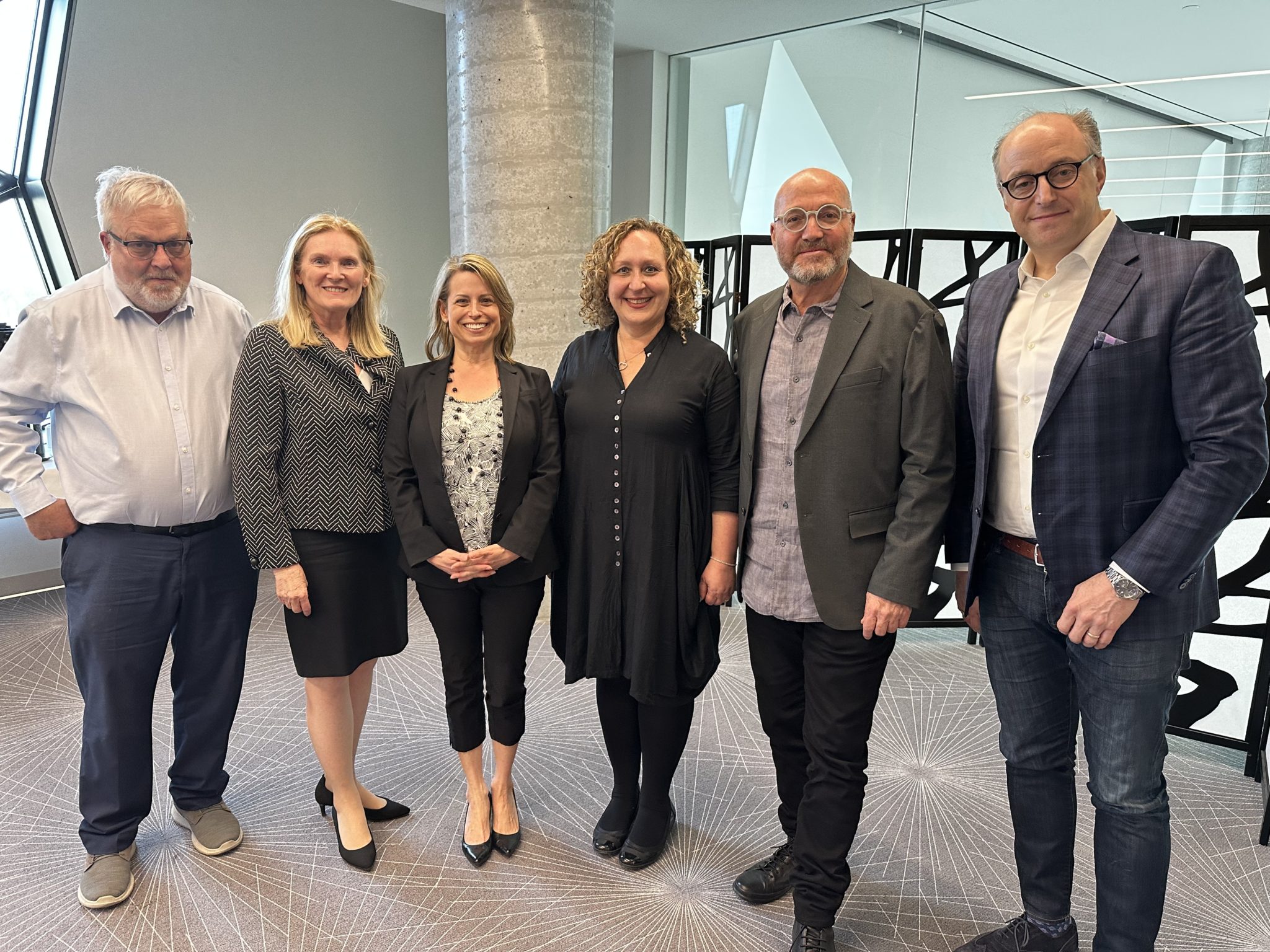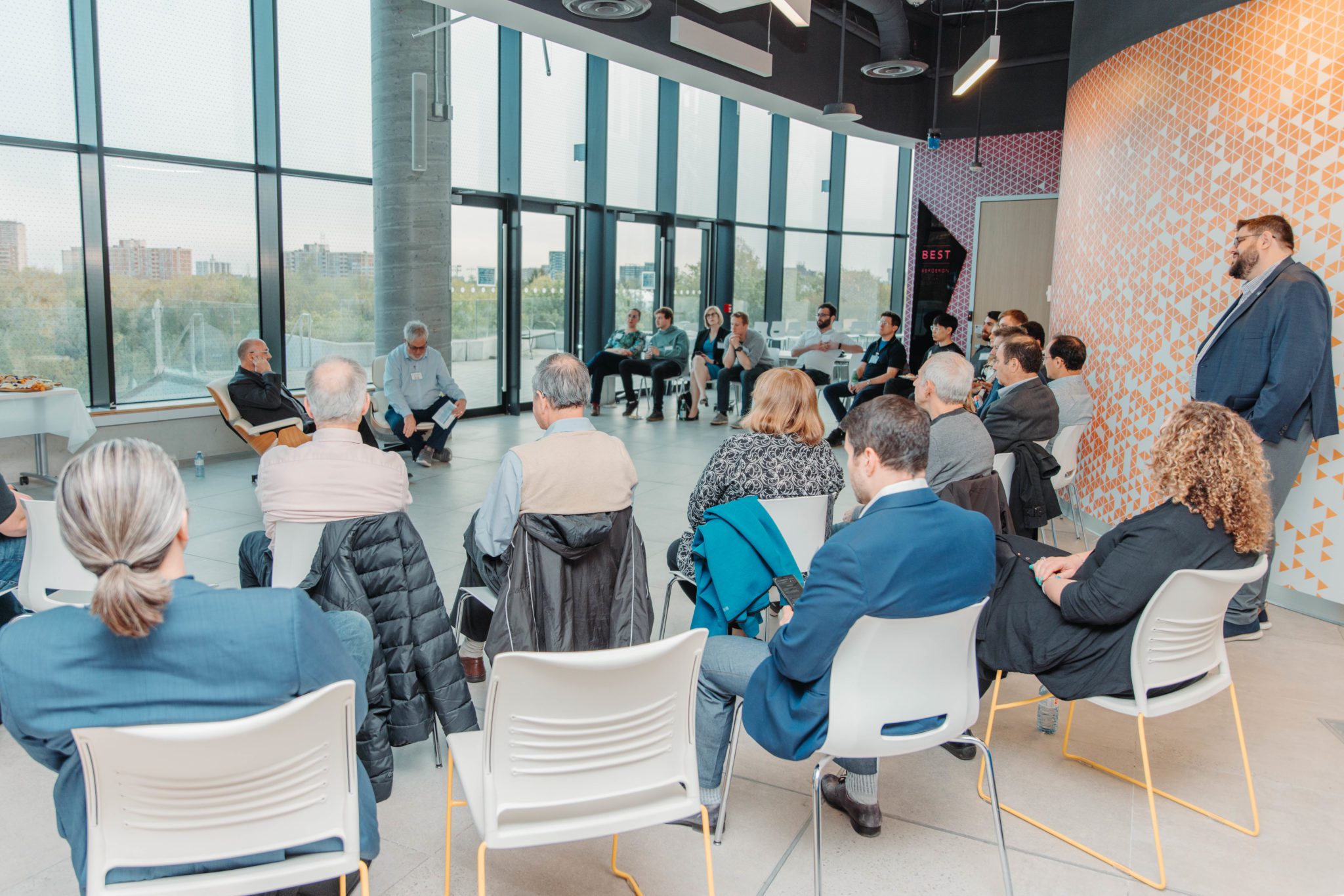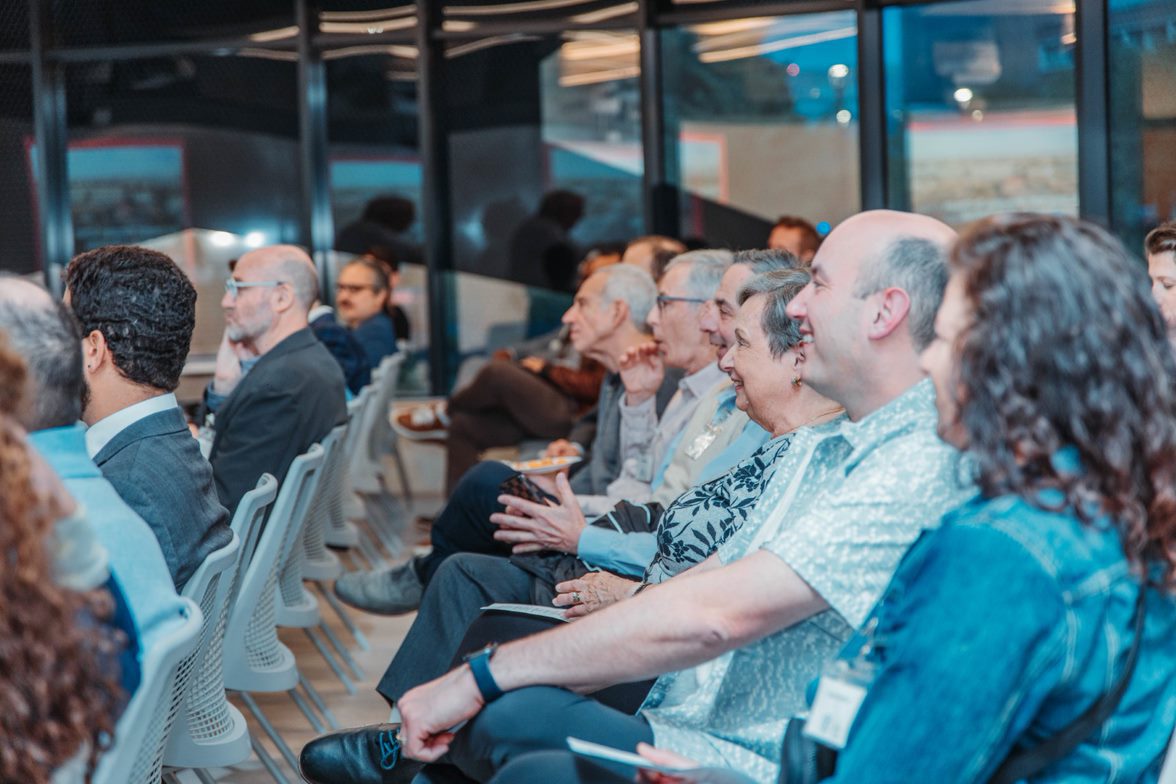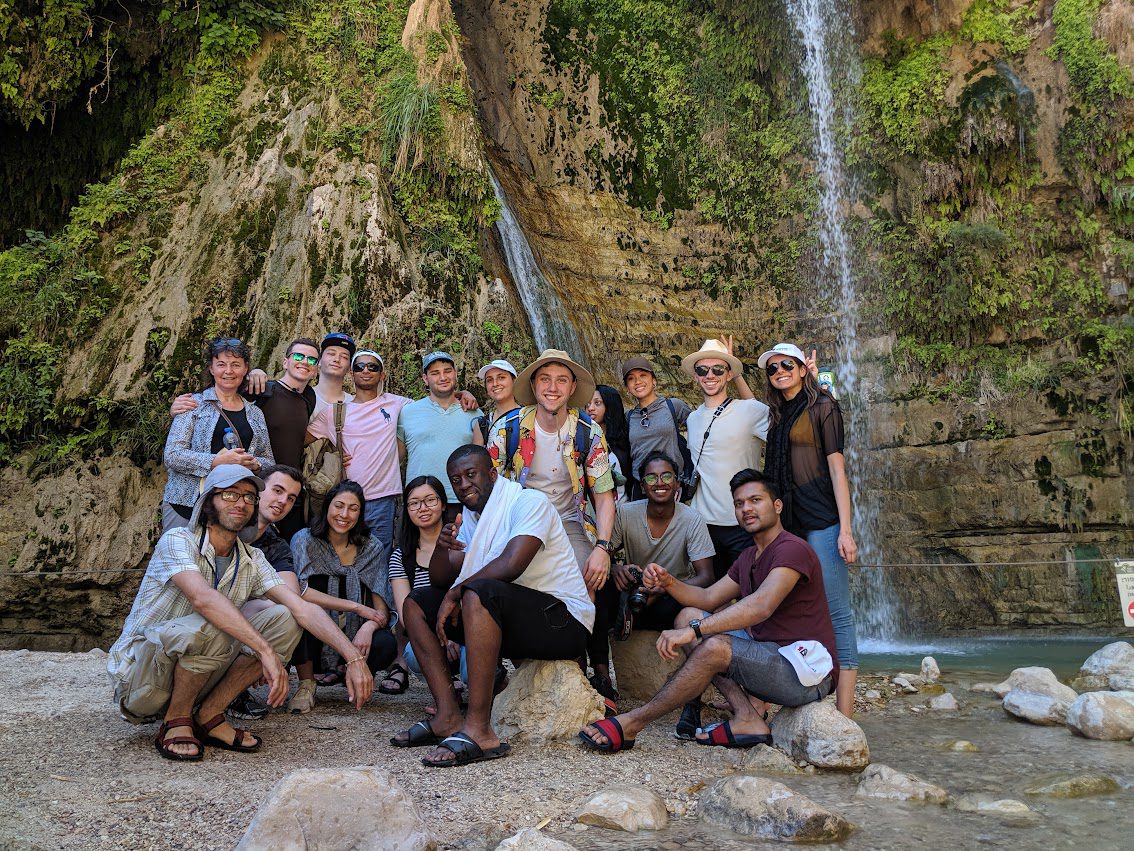By Elaine Smith

From left to right: York University’s Prof. Andrew Maxwell and President Rhonda Lenton with Jennifer Singer (Director, Major Gifts,Technion Canada), Elysa Greisman (National Executive Director, Technion Canada), Prof. Ezri Tarazi (Technion), and Edward Nagel (Co-President, Technion Canada)
As an international, research university committed to high-quality education and driving positive change, York’s top priority is to enhance research impact and the global fluency of our students through partnerships around the world. Rhonda Lenton, York University’s president and vice-chancellor, and Professor Andrew Maxwell, Bergeron Chair in Technology Entrepreneurship at the Lassonde School of Engineering, hosted Professor Ezri Tarazi, chair of t-hub from Technion – Israel Institute of Technology, in May to discuss initiatives for strengthening our relationship.
During his visit, Tarazi participated in a dinner conversation hosted by President Lenton. It was followed by a reception and lecture co-organized by the Lassonde School of Engineering’s Bergeron Entrepreneurs in Science and Technology (BEST) program and Technion Canada.

Fireside chat with Technion’s Prof. Ezri Tarazi facilitated by York University’s Prof. Andrew Maxwell
Technion is a top-ranked university in Israel celebrating the centennial anniversary of its first class in 2024, which coincides with the 10-year milestone of Technion-York relations. Maxwell began taking student entrepreneurs to Technion through the BEST program in 2014 for a three-week summer course. Cohorts consisted of Lassonde and other York students passionate about technology entrepreneurship. The partnership was formalized by senior leadership from both sides after then-York University President Mamdouh Shoukri co-signed an MOU with his Technion counterpart in 2016.
The relationship continued to evolve over the years. What started as a York course delivered at Technion for York students increasingly engaged Technion students and faculty. Technion faculty and leadership also visited York to discuss plans to deepen the collaboration.
However, the pandemic interrupted the programming cycle, and at about the same time, t-hub came online. Tarazi’s visit to York was an opportunity to re-establish and cement relationships.

York University and Technion Canada guests at the York University -Technion Canada event for Prof. Ezri Tarazi.
“Until a few years ago, we had no organized entrepreneurship program,” said Tarazi, adding that 75 per cent of Israel’s startups have at least one founder from Technion. “t-hub has become the hub for everything to do with innovation for students and faculty, transforming how students perceive the campus.”
Lenton noted that Technion is among the global universities with which York is keen to develop a sustainable strategic partnership.
“My visit to Technion in 2022 and today’s visit from Technion come at an opportune time,” Lenton said. “Travel restrictions have eased, a York-led research effort received a landmark investment of $318.4 million for the development of societally responsible technologies, and we are expanding our tech industry-driven programs through our new Markham Campus, located in one of Canada’s largest innovation hubs. We are also about to launch a joint entrepreneurship course with Technion in 2024.”
Jennifer MacLean, PhD, York’s assistant vice-president, innovation & research partnerships, said, “Our track record in a major North American ecosystem has attracted international partners like the Governments of India, Korea and Chile. We also offer several entrepreneurship-oriented degree programs and courses which attract students from all over the world. We are keen to expand the reach of our entrepreneurship programs by engaging key ecosystems in Israel, India, Singapore and the United States.”
Since 2018, over 800 companies have been supported, generating $205+ million in sales, raising $110+ million in investments and creating 1,300+ jobs through York’s pan-university entrepreneurship and innovation hub, YSpace. These incubators are deeply embedded in the network of the Greater Toronto Area’s many innovation clusters.
Despite the interruption in the BEST course, the connections with Technion did not stay dormant. Maxwell shared the BEST curriculum with t-hub counterparts who were developing new programs. This made it easier for both universities to take the next step toward planning to jointly teach a course for York and Technion students post-pandemic, because of the commonalities and complementarities in their respective curricula.
“We are keen to see the joint course co-taught by both universities in Haifa, eventually alternating between Technion and York. This would better integrate our respective ecosystems into our partnership,” said Maxwell.
Vinitha Gengatharan, assistant vice-president of global engagement and partnerships, facilitated the dinner conversation. York participants included Susana Gajic-Bruyea, vice-president, advancement; and faculty members from the Lassonde School of Engineering; Arts, Media, Performance & Design; and the Schulich School of Business.
A recurring theme during the conversations was the people-to-people connections that have had a transformative impact and enabled the relationship.
“We learned a lot from and were touched by the hospitality of Technion faculty like Professor Shlomo Maital and Technion students who came from diverse cultural and disciplinary backgrounds,” said Artem Solovey, an engineering student who participated in the BEST course before the pandemic and spoke during the evening’s lecture. “For example, Professor Maital hosted us for a meal at his house. And Technion International also made us feel at home and helped us network with founders. It was life-changing for me.”

York University and Technion students spending some time outside of the classroom together, before the pandemic.
Tarazi kept the guests attending the post-dinner events riveted with his insights. Guests were also happy to learn about the experience of York students at Technion, the plans for the joint course in 2024 and Maital’s connection to York. Maital is the co-author of Technion Nation: Technion’s Contribution to Israel and the World (Technion, 2012). Copies of the book were available during the post-dinner reception and lecture.
“In our program, students form teams, develop ideas, learn business concepts, apply them, and finally, after two intensive and intense weeks, pitch them to experts,” said Technion’s Maital, now a professor emeritus, about his pre-pandemic teaching collaboration with Maxwell. “The Technion students with whom Lassonde students interact are four or five years older, having done compulsory army service. Israeli culture has low power distance, high tolerance for risk. One in four Technion alums eventually launch a startup, so it is invaluable for them to get to know the culture of those to whom their innovations will ultimately be sold (in North America). York and Lassonde are relative newcomers, brash and innovative, and its students bring this mindset with them to Israel – where it is welcomed and appropriate.”
Tarazi echoed this sentiment. “I thoroughly enjoyed the afternoon and evening spent at York. I believe we can collaborate effectively and achieve a lot together.”

